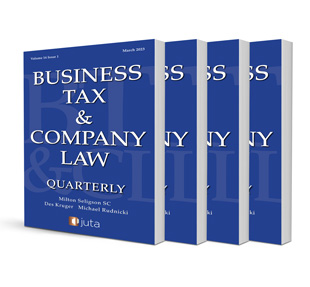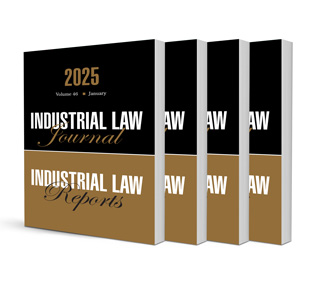Early Termination of a Lease: Tax Implications in the Hands of the Lessor

Early Termination of a Lease: Tax Implications in the Hands of the Lessor
Author: Des Kruger and Karabo Mogashoa
ISSN: 2219-1585
Affiliations: Consultant, Webber Wentzel Attorneys; Candidate Attorney, Webber Wentzel Attorneys
Source: Business Tax & Company Law Quarterly, Volume 15 Issue 4, 2024, p. 21 – 32
Abstract
It is not uncommon for a lessee to seek to exit a lease prior to termination date, for varied reasons. The lessor will usually only be amenable to such early termination in exchange for an early termination payment. The crisp issue is: is such termination payment a receipt of a capital or revenue nature. Intuitively, the answer is that the compensation is of a revenue nature as the compensation is to compensate the lessor for a loss of the rentals that would have been paid by the lessee had the lease run its course.
However, the answer, as argued in this article, is not that straight forward. The answer is very dependent on the facts. The premise of this article is that where compensation is paid by a lessee to a lessor as compensation for the lessor agreeing to cancellation of a lease agreement, the compensation will be of a capital nature where the lease agreement constitutes the major, or the whole, business of the lessor. The fact that the lessor will in all probability be able to find a new tenant does not affect this conclusion. Nor is the conclusion different if the compensation is determined by reference to the loss of rentals that will arise in consequence of the termination of the lease agreement. By contrast, where the lease arrangement is merely a part (i e not a major or the whole) of the lessor’s business, the compensation will in all likelihood be regarded as a receipt of a revenue nature.
On the basis that the compensation derived by the lessor for the early termination of the lease agreement is a receipt of a capital nature in these specific circumstances, the issue arises as to the capital gains tax (CGT) implications that arise in consequence of such receipt. The authors conclude that while the termination payment will constitute proceeds for CGT purposes, as the lessor will not have incurred any expenditure in respect of the acquisition or creation of the lease agreement qua asset, the base cost in such asset is nil.
As the termination of the lease agreement constitutes the surrender of a right, and accordingly the supply of a service for value-added tax (VAT) purposes, VAT will need to be accounted for by the lessor (if a VAT vendor) on receipt of the termination payment.
